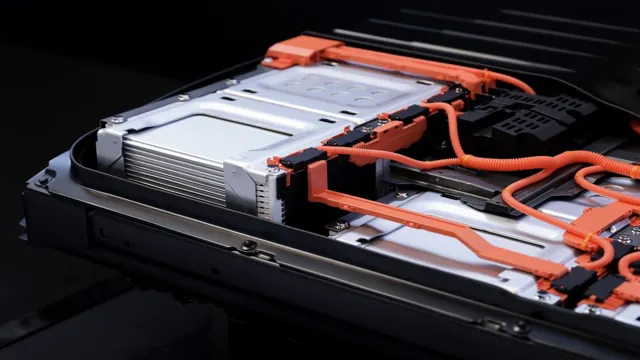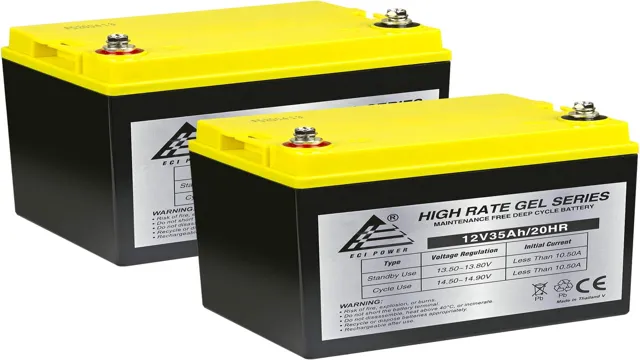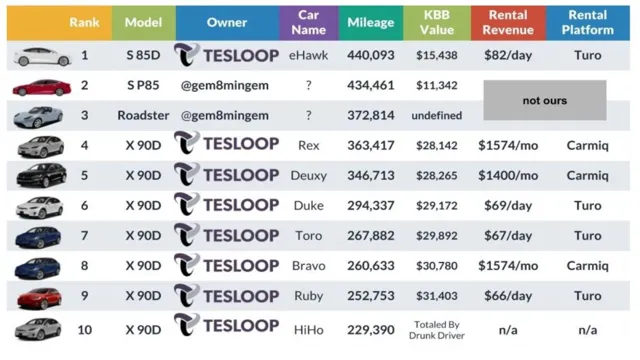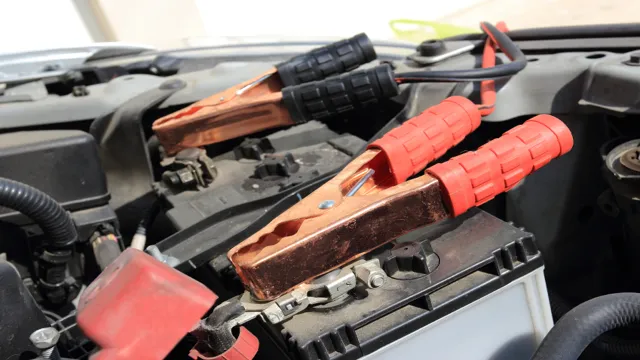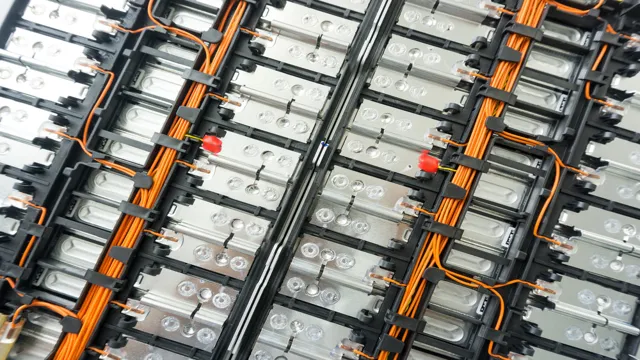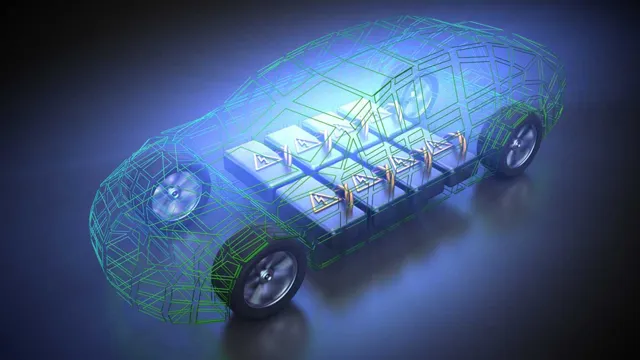Powering the Future: Exploring the Different Types of Electric Car Batteries
Electric cars are becoming increasingly popular, and for good reason. They offer numerous benefits, including reduced emissions, improved fuel efficiency, and lower operating costs. However, one aspect of electric cars that can be confusing to many people is the type of battery used.
There are several different types of batteries available, each with its own set of advantages and disadvantages. In this blog post, we’ll take a closer look at the different types of electric car batteries and help you understand which type is right for your needs. So, if you’re considering buying an electric car, read on to learn more!
Introduction
Are you curious about the type of batteries used in electric cars? These vehicles rely on rechargeable batteries to power their engines, but did you know that there are various battery types used in electric cars? The most common type is the lithium-ion battery, which is also used in most smartphones and laptops. These batteries are lightweight, have high energy density, and can hold a charge for a long time. However, some electric cars use other battery types such as nickel-metal hydride (NiMH) and solid-state batteries.
Each battery type has its pros and cons, but automakers generally choose the most efficient, cost-effective, and safe option for their electric cars. So, the next time you see an electric car on the road, you can now be confident that it’s running on a reliable and cutting-edge battery technology.
The Basics of Electric Car Batteries
Electric car batteries are the heart and soul of electric vehicles, providing the necessary power to move the car forward. They are crucial components of electric cars as they determine how far the car can go before it needs to be recharged. The technology behind these batteries has improved dramatically over the years, increasing their efficiency and lifespan.
Electric car batteries work by converting stored chemical energy into electrical energy. These batteries are made up of many individual battery cells linked together, and the more cells a battery has, the more energy it can store and the farther the car can travel. As the demand for electric cars grows, manufacturers are continuously working to improve battery technology and increase the driving range of electric cars.
With these advancements, the future of electric vehicles is looking bright.
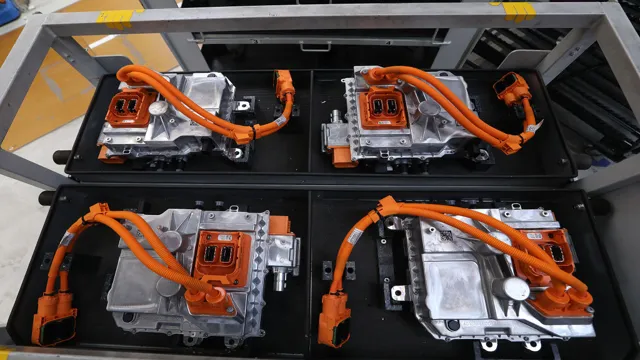
Types of Electric Car Batteries
Electric car batteries have come a long way since their inception, and there are several types available in the market. The development of electric vehicles has seen significant strides in battery technology, and each type of battery has its advantages and disadvantages. A lithium-ion battery is the most widely used type of battery in electric cars due to its relatively high energy density, low weight, and long cycle life.
However, they are expensive to manufacture and require careful management to maintain their performance and longevity. Other types of batteries used in electric cars include nickel-metal hydride (NiMH) batteries, which are less expensive but have lower energy density and shorter cycle life, and solid-state batteries, which promise even higher energy density than lithium-ion batteries but are still in the research and development phase. Ultimately, the choice of battery type depends on the specific requirements of the electric vehicle and its intended use.
Lithium-Ion Batteries
If you’re wondering what type of batteries are used in electric cars, the answer is lithium-ion batteries. These batteries have revolutionized the industry due to their high energy density, efficiency, and ability to be recharged. Unlike traditional lead-acid batteries, lithium-ion batteries are lightweight, making them ideal for electric vehicles.
They also have a longer lifespan and can be charged and discharged many times without losing their effectiveness. Lithium-ion batteries are made up of a cathode, an anode, and an electrolyte. When the battery is charging, the lithium ions move from the cathode to the anode, and when discharging, they move in the opposite direction.
The use of lithium-ion batteries has led to a decrease in the cost of electric vehicles, and the technology is evolving continuously, improving their capabilities.
Advantages of Lithium-Ion Batteries
Lithium-ion batteries are becoming increasingly popular due to their numerous advantages that make them a better option than traditional batteries. These batteries have a higher energy density, which means they can store more energy in a smaller size, making them more convenient for everyday use. They also have a longer lifespan, offering more cycles and a higher capacity retention over time.
Additionally, lithium-ion batteries are much lighter and more compact than other rechargeable batteries, making them easier to transport and use in portable devices. Moreover, they are more eco-friendly and safer than other battery types because they don’t contain harmful metals like lead or mercury. Overall, lithium-ion batteries offer a more efficient, cost-effective, and environmentally-friendly solution to our energy needs, making them a preferred choice for many applications, from smartphones to electric vehicles.
Disadvantages of Lithium-Ion Batteries
Lithium-ion batteries are the most popular type of rechargeable batteries, which we use every day in our smartphones, laptops, and electric cars. Lithium-ion batteries have several advantages, such as high energy density, low maintenance, and long cycle life, but they also have a few disadvantages. One major drawback of lithium-ion batteries is their high cost and complexity, which makes them expensive and challenging to manufacture.
Another disadvantage is their limited lifespan and degradation over time, which reduces their performance and capacity. Lithium-ion batteries can also be a safety hazard if they overheat, short circuit, or are not handled correctly. Their high energy density can produce intense heat and cause fires or explosions if the battery is punctured or damaged.
Despite these disadvantages, lithium-ion batteries remain the most widely used type of battery because of their high energy density, reliability, and efficiency.
Examples of Cars that Use Lithium-Ion Batteries
Lithium-ion batteries are becoming increasingly popular in modern cars due to their high energy density and longer lifespan. One example of a car that uses these batteries is the Tesla Model S, which has a range of over 300 miles on a single charge. Another popular car that utilizes lithium-ion batteries is the Nissan Leaf, which has a range of approximately 150 miles.
These cars offer a sustainable alternative to traditional gasoline-powered vehicles, and as technology continues to improve, we may see even more cars incorporating lithium-ion batteries in the future. Despite their higher cost, many drivers appreciate the environmental benefits and lower ongoing maintenance costs associated with using these batteries. So next time you’re considering purchasing a new car, keep these options in mind and consider going electric with a lithium-ion battery powered vehicle.
Nickel-Metal Hydride Batteries
If you’re wondering what type of batteries electric cars use, the answer is typically nickel-metal hydride (NiMH) batteries. These batteries are preferred over other types such as lead-acid or nickel-cadmium because they have a higher energy density and can hold more charge. NiMH batteries also have a longer lifespan and are more environmentally friendly than traditional lead-acid batteries.
They are used in many popular electric car models such as the Toyota Prius and the Nissan Leaf. However, newer models are now using lithium-ion batteries which have an even higher energy density and can hold more charge, making them even more efficient. Despite this, NiMH batteries still remain a popular option for those looking for a reliable and cost-effective alternative to traditional gasoline-powered cars.
Advantages of Nickel-Metal Hydride Batteries
Nickel-Metal Hydride Batteries Nickel-Metal Hydride (Ni-MH) batteries are rechargeable batteries that have been gaining popularity in recent years. These batteries have several advantages over other types of batteries. They are environmentally friendly and have a longer life span compared to other rechargeable batteries.
Additionally, they are much safer to use as they do not contain any toxic chemicals like lead and cadmium. Ni-MH batteries are also lightweight, making them an ideal choice for portable devices like laptops and mobile phones. They are also known for their low self-discharge rate, meaning they can retain their charge for a longer period when not in use.
Although they are slightly more expensive than other types of rechargeable batteries, the long-term benefits make them a worthwhile investment. Overall, Ni-MH batteries are an excellent choice for anyone looking for a reliable and long-lasting battery.
Disadvantages of Nickel-Metal Hydride Batteries
Nickel-Metal Hydride Batteries While nickel-metal hydride batteries have advantages like higher energy density and better power output than traditional nickel-cadmium batteries, they also come with their disadvantages. One of the downsides of nickel-metal hydride batteries is that they tend to self-discharge quickly, losing up to 30% of their charge in just one month. This can be a significant problem for devices that are not used frequently, as the batteries may lose their charge and become unusable when needed.
Additionally, nickel-metal hydride batteries have a lower lifespan than lithium-ion batteries, meaning they need to be replaced more frequently and can be more expensive in the long run. Finally, nickel-metal hydride batteries’ production process involves the use of rare-earth metals, which are expensive and have environmental consequences. Therefore, while nickel-metal hydride batteries can be useful in certain applications, it’s essential to weigh the advantages and disadvantages carefully.
Conclusion
In conclusion, electric car batteries are not just any type of battery. They are a unique and innovative technology that harnesses the power of electricity in an eco-friendly way. As we move towards a more sustainable future, electric car batteries are paving the way for a more responsible and environmentally conscious mode of transportation.
So next time someone asks you what type of battery an electric car uses, you can confidently reply: “Oh, it’s not just any battery. It’s a battery that’s charged with electric energy and a powerful symbol of our commitment to a greener world.”
FAQs
What types of batteries are used in electric cars?
There are primarily four types of batteries used in electric cars: lead-acid, nickel-cadmium, lithium-ion, and solid-state batteries.
Which type of battery is commonly used in newer electric cars?
Lithium-ion batteries are commonly used in newer electric cars due to their high energy density and longer life span.
What are the advantages of using solid-state batteries in electric cars?
Solid-state batteries have higher energy densities, longer life spans, and faster charging times compared to other types of batteries, making them an ideal choice for electric cars.
Can lead-acid batteries be used in electric cars?
While lead-acid batteries are cheaper than other types of batteries, they are heavier and have lower energy densities, making them less suitable for electric cars. However, they are still used in some electric cars for specific applications.
